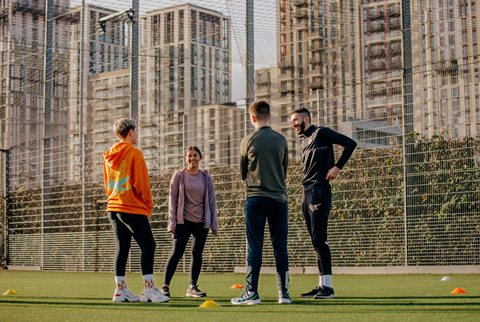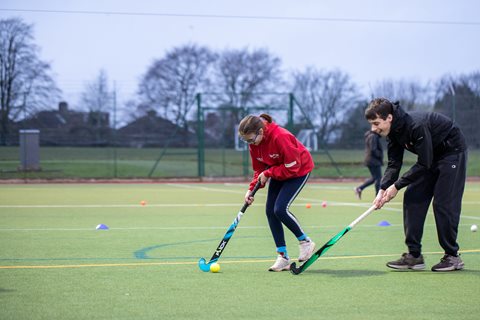Our cookies
We use essential cookies to make our website work smoothly for you. To make sure we're always improving, we'd like to use analytics to track how people use the site. We won't set non-essential cookies unless you give us permission. You can find more information about all the cookies we use in our Privacy and Cookie Policy.
Some cookies are a must for our website to function properly. If you turn off essential cookies, it may affect how you experience our site.
The non-essential cookies we use help us understand how you use our website and make improvements to enhance your experience.
7 Tips for Coaching Kids' Sport
Coaching children and teenagers requires a different approach to coaching adults. With help from experienced kids’ coach, Becky Evans, we’ve put together some tips to help you inspire your young players and set them up for a lifetime of participation.
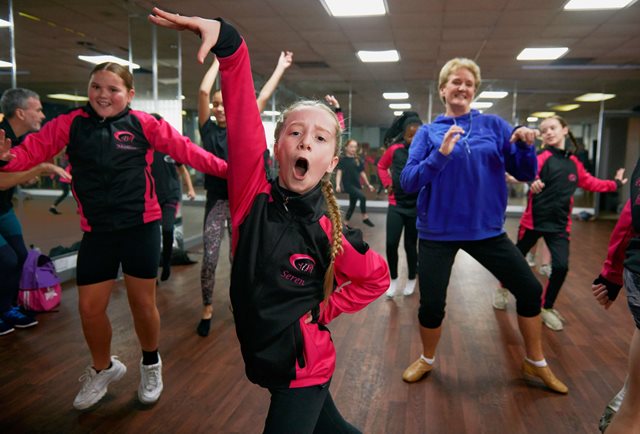
Included in this article:
- What makes a good children's coach?
- How do you coach children in sport?
- CHOICE: Keeping sessions dynamic
- Using games to make sessions fun
- The importance of getting to know all your children
- Keeping communication clear and simple
- VOICE: Including child-first activities
- How to head off challenging behaviour
- JOURNEY: Tips for being positive and giving plenty of praise
- Download FREE Resource: Child-first ideas to ensure children have a VOICE in your session
What makes a good sports coach for kids?
To be successful at coaching kids’ sport, you need to put the kids at the heart of everything you do. This means listening to their ideas and incorporating them into sessions, ensuring everyone is included and, above all, making sure they’re having fun so they want to keep coming back.
Coaching kids for enjoyment is important: Sport England’s research has found that enjoying activities is the biggest driver of participation among children. But there are lots of different coaching styles in sport, so how do you tailor your approach to kids?
As a grassroots coach, you need to let go of the mindset that focuses on constant progression and drilling so they play better, says Becky. "Of course, grassroots coaches want kids to reach their potential and there’s room for that but what we really need to be doing is creating lifelong participants. That means building a positive environment where they’re developing confidence as well as skills.
Taking part in a sport gives them a tool to make friends when they go on to college or university and gives them that link to the community through a local sports club wherever they go. You’ve achieved as a grassroots coach if that child is still taking part in sport throughout their entire life."
Becky Evans Hotshots netball club
How do you coach children in sport?
Here are some tips that you can adapt so that they apply to any sport. Just remember that the main objective of coaching kids’ sport is coaching young people to be active rather than turning them all into brilliant players.
Keep kids' coaching sessions dynamic
Plan sessions so they’re fast paced and avoid dead time when children can get bored. "I’ve seen coaching sessions where they’re in a queue of 20 waiting to take a shot or penalty," says Becky.
"The aim is to make sure everyone is involved, challenged and enjoying themselves at all times."
For example, you could divide them into groups with different activities and then rotate, or get them passing between each other while they wait.
Even during games when it’s inevitable some will be waiting to go on, she finds ways to keep them involved.
"I have a stats book on the side and get them to keep score, and record things like interceptions."
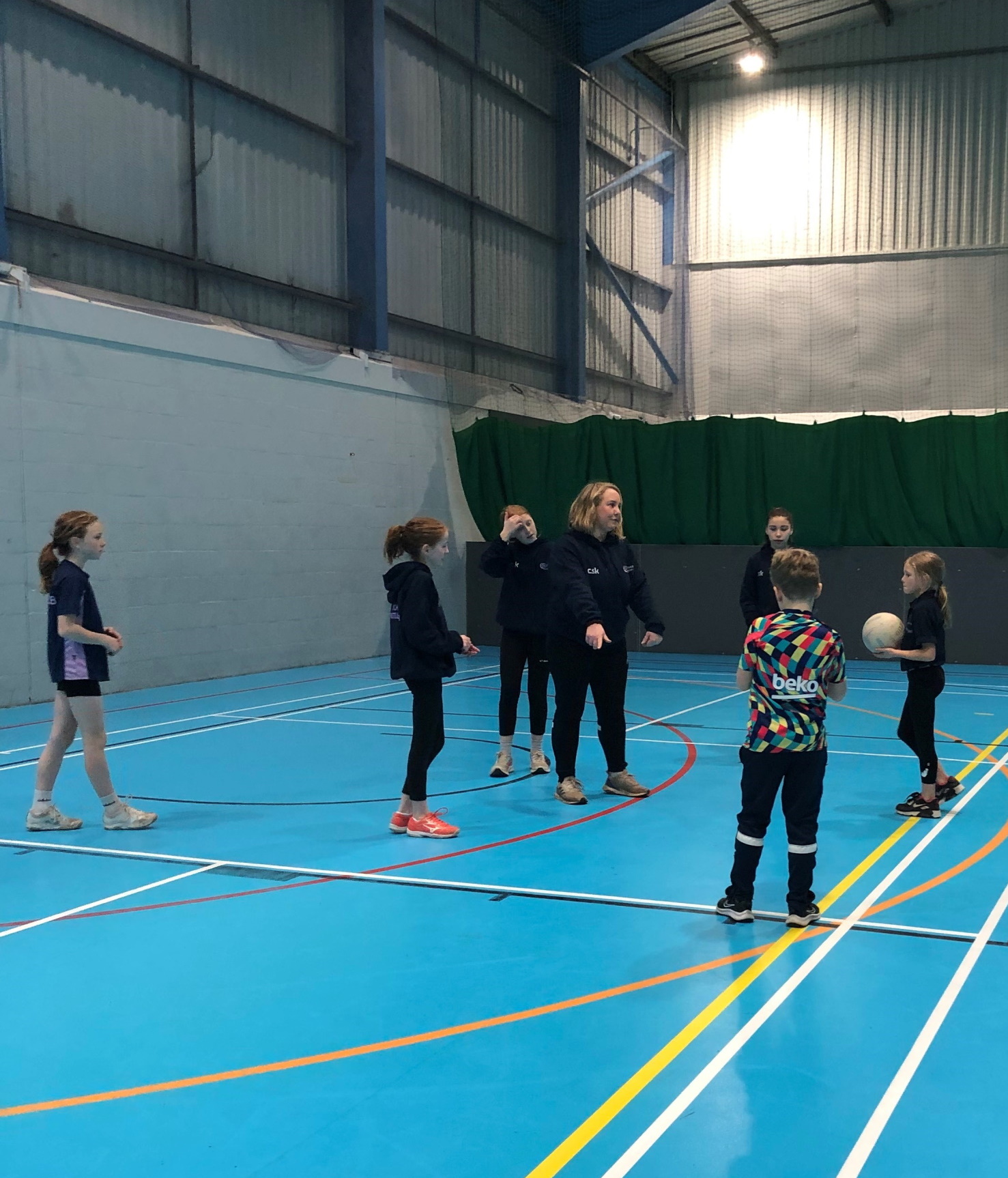
The Coaching Compass
Start your child-first coaching journey with the Coaching Compass! Simply answer a few quick-fire questions to create your unique child-first coaching profile.
Chart Your Course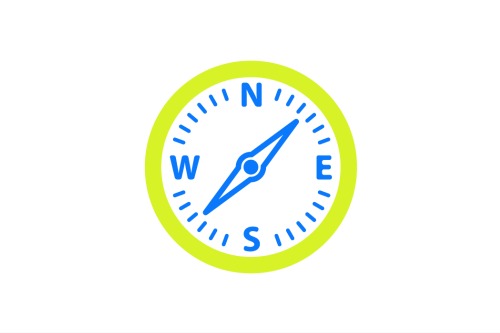
Use games to make coaching sessions fun
Here are some games you could use, or adapt for your own sport. They’re good for warm-ups and developing skills.
This game encourages kids to look for space, dodge and change direction quickly.
Have one or more ‘taggers’ in the middle of the playing area. When you say ‘go’ the other players must run from one side of the playing area to the other without being tagged. If they are tagged, they also become a tagger.
This game helps participants practise ball-catching skills.
- Put players in pairs and ask them to stand on a line opposite each other with a channel down the middle so you have two lines facing each other. These are the two teams.
- Give each opposing pair a number.
- Stand in the middle of the channel at one end of the lines with a ball in each hand.
- When you shout a number, that pair runs to you and each grabs a ball and then moves down their team line, passing to each player in turn.
- When they get to the end of the line, they bring the ball back to you. The first player to return the ball wins a point for their team.
Tip: if you have a large number of participants, run two games at the same time. It works best with five pairs in each game.
This game improves catching, communication and spatial awareness.
- Appoint one or more players as ‘taggers’, and one or more players as ‘releasers’.
- The taggers hold a ball in two hands and run around trying to tag people.
- When a player is tagged, they stand still holding their hands out in front of them, making a ‘magic W’ with thumbs down, fingers up ready to catch a ball.
- The releasers also have a ball. Their job is to run around and throw the ball to stuck players who are making the W shape.
- Once a stuck player has caught the ball and returned it to the releaser, they are free to run around again.
You can expand your set of tools for coaching kids’ sport by watching other coaches’ sessions, searching online, and by looking on YouTube and social media. We also have a bunch of brilliant resources developed with coaches like Becky to help you put children at the heart of your coaching practice, right here on the Play Their Way website. "When I realise something’s not working in a session, I can adapt quickly and fall back on one of the kids’ favourite games or activities," says Becky.
You can expand your set of tools for coaching kids’ sport by watching other coaches’ sessions, searching online, and by looking on YouTube and social media. We also have a bunch of brilliant resources developed with coaches like Becky to help you put children at the heart of your coaching practice, right here on the Play Their Way website.
"When I realise something’s not working in a session, I can adapt quickly and fall back on one of the kids’ favourite games or activities," says Becky.
Get to know all the kids
One of the qualities of a good sports coach is the ability to build personal connections, so it’s important to get to know the kids as individuals.
"A good coach will understand who’s happy to demonstrate a skill and who would absolutely hate being the centre of attention," explains Becky.
With this knowledge, you can tailor your behaviour to meet the needs of each individual. Even a small change can have a big impact.
"I coach a painfully shy girl and I know she’s there to develop her social skills and confidence so I have a little chat with her find out what her week was like.
If kids know that you care they will respond better and enjoy the session more."
Becky Evans Hotshots netball club
Keep communication clear and simple
When you’re coaching kids’ sport, don’t give too much information at once and avoid vocabulary that kids might not understand. Try to think of short catchphrases that get across coaching points, advises Becky. "I use ‘thumbs down, fingers up’ for when they’re catching a ball and ‘flat and fast’ to remind them how a ball should travel. When you say your catchphrase, it focuses their brains and they know exactly what you mean."
Include child-first activities
Play that is initiated by the kids themselves is an important part of development as it helps them build confidence, social interaction skills and decision-making.
Remember: not everything needs to have a coaching point.
You can play some games purely for fun, and perhaps have some sessions, such as the one before a break, where the kids lead most of the activities themselves.
Ask kids for their feedback and input on a regular basis and use this in your planning.
"At the close of a session, it’s good practice to ask what they enjoyed, what they got from the session, and what they want to do next week," says Becky. Make sure you actively listen to what they have to say so they know their input is valued, and be sure to get the views of the less vocal members of the group too."
.jpg)
Ready to Take Action?
Use these child-first ideas to make sure that everyone in your session has a voice.
ENSURE THAT EVERYONE HAS A VOICE
Head off challenging behaviour
Some children find it harder to focus than others. One of the responsibilities of a sports coach is to ensure that everyone has an equal chance to participate, so plan your sessions to accommodate different needs. "If a child finds it hard to stand in a group and listen, make sure they’re part of the conversation," advises Becky. "Give them a responsibility and a job to do, such as helping with the demonstration.
"Also, remember that as you build a relationship with a group, it will build up their trust in you as a coach and their confidence to shape their own sessions too."
Be positive and give plenty of praise
"It’s important to be specific with praise so that your comments hold more value for the children," says Becky. “For example, I might say: ‘Kate, that was a really sharp change of direction—well done’. If you provide generic praise all the time, it becomes less and less effective.
"At the end of the session, I’ll offer praise relating to something they’ve worked on. I might say: ‘I’m really impressed with all your efforts today. At the start of the session, I asked you to make sure every ball was thrown flat and fast and in the game at the end I didn’t see one long and loopy pass. I’m very impressed so well done’. I’ll also tell them what a pleasure they are to coach and how hard they’ve worked."
Director of Play England Eugene Minogue talks about the danger of 'sportising' children and how to champion free play on the Play Their Way Podcast.
Other resources that you may like...
About the contributor
Becky Evans has been coaching kids and young people, mainly in netball, for over 20 years. She has coached in primary and secondary schools and trained other coaches to work with children. She has a degree in sports development and now works as an investment advisor for Sport England, as well as coaching at Hotshots netball club in South Shropshire.
SHARE THE MOVEMENT
Help spread the word by sharing this website with fellow coaches!

